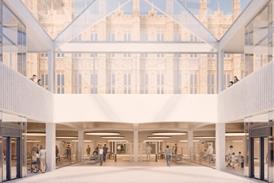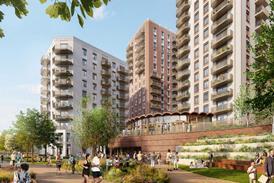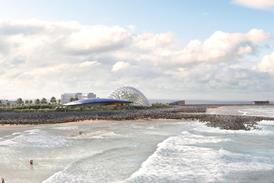Building Design’s new professional coach Louise Rodgers outlines a key skill for resilient practices

I attended my first public consultation for a new housing development almost 30 years ago. It was one of the largest urban regeneration schemes in the UK. Unsurprisingly, given that the homes of thousands of people would be affected, the meeting was well attended and lively.
I sat at the back. At the front was an architect. His presentation was engaging and passionate, but he used words like units instead of homes, and when talking about the difficult process of people having to move away from the estates so that their homes could be demolished, he referred to it as decanting. The atmosphere in the room became increasingly fractious. Tenants, understandably suspicious, did not respond well.
What they were hearing, although it wasn’t being said, was that their community was one that was deemed to have failed so badly it had to be knocked down. And the architect was demonstrating a mind-numbing lack of empathy.
Fast-forward 30 years and empathy is still a skill that many in the architectural profession struggle to master.
The pace of modern working life can be relentless. It leaves us little time to stop, listen and connect with families and friends, let alone colleagues. Yet stretching our empathy muscle in the office can bring many benefits.
Author and science journalist Daniel Goleman said: “In a high-IQ job pool, soft skills like discipline, drive and empathy mark those who emerge as outstanding.”
Empathy is a skill many in the architectural profession struggle to master
Neuroscientists agree that we are born with an empathic instinct. Anyone who has cared for a baby will know that they experience emotional contagion: crying when another baby in the vicinity cries is an early sign of empathy development.
As we grow older and develop more ego-driven attitudes and behaviours, empathy often takes a back seat in the struggle for success, reward and status.
If we accept that empathy is one of the hallmarks of a progressive and successful business, how can we encourage more of it?
Empathy can only be triggered when there is genuine communication; when teams and individuals can freely communicate issues, successes and challenges both with each other and with leadership. Where people will speak up, rather than stay silent.
And if people are stuck in the day to day, working in silos and unaware of what is happening outside their specific “space”, the only way to gain awareness of what’s happening is to encourage and make the time to get out there and see it.
We can also make an individual commitment to work on our own empathy skills.
If we share something of ourselves, we make it easier for others to share with us. In the workplace, the result can be better teamwork and improved individual performance, both of which serve to move projects and businesses forward.
We can focus on becoming more aware of our biases. We all have biases. Some of them are conscious because we know we have them. Others are unconscious – we react automatically, without thinking.
Biases come from our upbringing and experience. We can never get rid of them completely, but we can become more aware of them and ensure that they don’t affect our decision-making.
Finally, we can read a novel, or some poetry. In the words of Percy Bysshe Shelley: “A man, to be greatly good, must imagine intensely and comprehensively; he must put himself in the place of another and of many others; the pains and pleasure of his species must become his own.”
We need to think of our businesses as a network of human relationships. By making space for vulnerability and demonstrating empathy, we enrich those human relationships and ultimately build more resilient businesses.
Postscript
Louise Rodgers is a personal and business coach. She co-created and co-delivers Step Up, a leadership development programme for architects.
















No comments yet